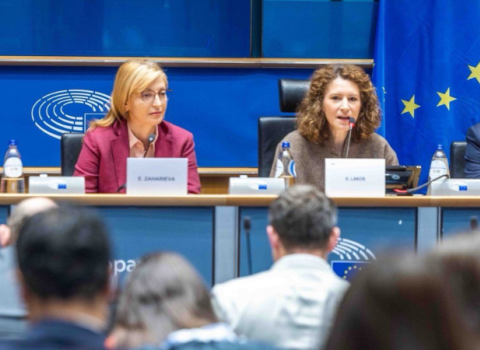Finland has the potential to boost international RDI cooperation and technological development linked to artificial intelligence with, for example, Singapore.
High-performance computing infrastructures supporting AI development, such as EUROHPC-LUMI, located in the data centre in Kajaani, Finland, enable expanding AI development capitalizing on data in various sectors, such as urban and transport planning, health technology development and material research.
CSC, in cooperation with the Embassy of Finland in Singapore, organized an event focusing on high-performance computing and artificial intelligence infrastructures in Singapore on 17 September. Deepening collaboration opportunities are foreseen especially in relation to the Horizon Europe framework programme, if Singapore’s association to the programme progresses as hoped.
The Advanced Computing and AI Infrastructures Supporting Research and Innovation event was organised at the facilities of the Embassy of Finland in Singapore in Marina Bay, at the heart of the Singapore business quarters, and was attended by representatives of Singapore’s research field and research infrastructures, administration and the business world. The event was opened by Ambassador Juha Markkanen, who emphasized the importance of international cooperation not only in research and strengthening competences, but also in the development and utilization of new innovations and technologies. Finland and Singapore have many complementary strengths.
Research on sustainable urban development utilizes HPC
The more extensive utilization of high-performance computing and AI infrastructures was the main theme of the event, also discussed in the following talks. Professor Tuuli Toivonen from the Department of Geosciences and Geography at the University of Helsinki gave a keynote speech about the importance of high-performance computing in sustainable urban development research, in which cooperation between Finnish researchers and researchers linked to Singapore has already been established.
“Sustainable urban development research is multidisciplinary and utilizes extensive datasets. We need the versatile capacity of high-performance computing to answer our research questions. Using for instance artificial intelligence, extensive datasets can be utilized to study the use of urban space and to find the best solutions for purposes such as landscaping and curbing heat waves in urban environments. I think that strengthening the cooperation with Singaporean researchers has a lot of potential, and I hope we could have the computing capacity and financial instruments to support the deepening cooperation,” explains Professor Tuuli Toivonen.
Finland and Singapore have great potential for collaboration
The theme of the event’s panel discussion was Advanced Computing and AI Infrastructures Supporting Global Collaboration on RDI Ecosystems. All panel members identified the development of computational capabilities and new technologies as a key driver of change, which can be used to reach a new level in the utilization of extensive datasets, both for research and for the needs of different sectors.
Finland and Singapore are strongly investing in the development of high-performance computing and quantum technologies, which make it possible to examine complex issues. From the perspective of research cooperation, high-performance computing infrastructures supporting AI development, as well as financing mechanisms supporting international cooperation, such as the EU framework programme for research, are essential.
The event and the interest it attracted showed the topical nature of the theme. Currently, research cooperation between Finland and Singapore based on high-performance computing and artificial intelligence infrastructures works well in some individual research areas. However, developing global cooperation could quickly scale up to broader RDI activities utilising data and AI development, provided that the necessary financial instruments are made available to support this growth. Finland and Singapore have high potential for cooperation, as well as first-class infrastructure and expertise that support RDI activities.
This article was first published on 18 September by CSC.





 A unique international forum for public research organisations and companies to connect their external engagement with strategic interests around their R&D system.
A unique international forum for public research organisations and companies to connect their external engagement with strategic interests around their R&D system.